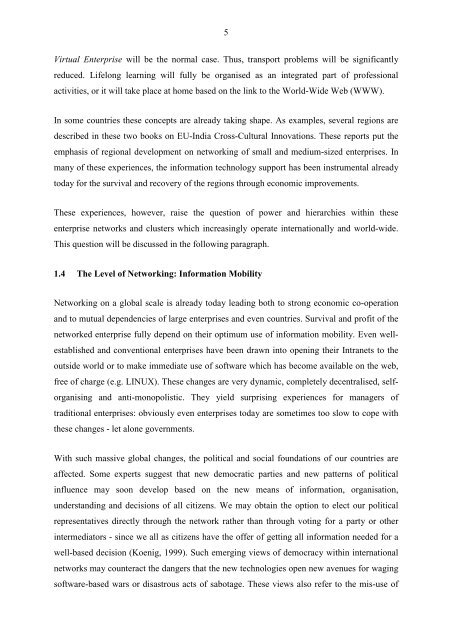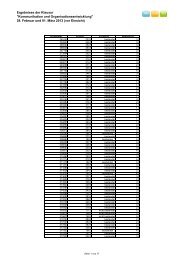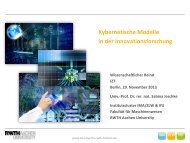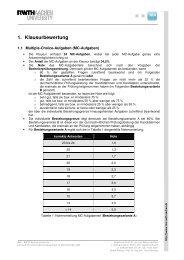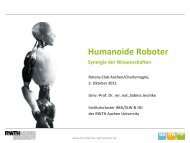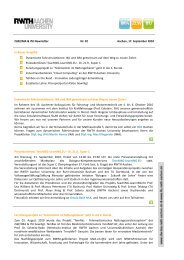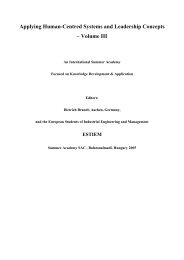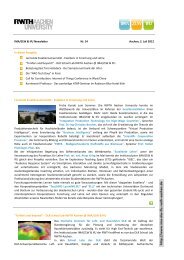Vol. II: Shaping Information and Communication ... - IMA,ZLW & IfU
Vol. II: Shaping Information and Communication ... - IMA,ZLW & IfU
Vol. II: Shaping Information and Communication ... - IMA,ZLW & IfU
Create successful ePaper yourself
Turn your PDF publications into a flip-book with our unique Google optimized e-Paper software.
5<br />
Virtual Enterprise will be the normal case. Thus, transport problems will be significantly<br />
reduced. Lifelong learning will fully be organised as an integrated part of professional<br />
activities, or it will take place at home based on the link to the World-Wide Web (WWW).<br />
In some countries these concepts are already taking shape. As examples, several regions are<br />
described in these two books on EU-India Cross-Cultural Innovations. These reports put the<br />
emphasis of regional development on networking of small <strong>and</strong> medium-sized enterprises. In<br />
many of these experiences, the information technology support has been instrumental already<br />
today for the survival <strong>and</strong> recovery of the regions through economic improvements.<br />
These experiences, however, raise the question of power <strong>and</strong> hierarchies within these<br />
enterprise networks <strong>and</strong> clusters which increasingly operate internationally <strong>and</strong> world-wide.<br />
This question will be discussed in the following paragraph.<br />
1.4 The Level of Networking: <strong>Information</strong> Mobility<br />
Networking on a global scale is already today leading both to strong economic co-operation<br />
<strong>and</strong> to mutual dependencies of large enterprises <strong>and</strong> even countries. Survival <strong>and</strong> profit of the<br />
networked enterprise fully depend on their optimum use of information mobility. Even wellestablished<br />
<strong>and</strong> conventional enterprises have been drawn into opening their Intranets to the<br />
outside world or to make immediate use of software which has become available on the web,<br />
free of charge (e.g. LINUX). These changes are very dynamic, completely decentralised, selforganising<br />
<strong>and</strong> anti-monopolistic. They yield surprising experiences for managers of<br />
traditional enterprises: obviously even enterprises today are sometimes too slow to cope with<br />
these changes - let alone governments.<br />
With such massive global changes, the political <strong>and</strong> social foundations of our countries are<br />
affected. Some experts suggest that new democratic parties <strong>and</strong> new patterns of political<br />
influence may soon develop based on the new means of information, organisation,<br />
underst<strong>and</strong>ing <strong>and</strong> decisions of all citizens. We may obtain the option to elect our political<br />
representatives directly through the network rather than through voting for a party or other<br />
intermediators - since we all as citizens have the offer of getting all information needed for a<br />
well-based decision (Koenig, 1999). Such emerging views of democracy within international<br />
networks may counteract the dangers that the new technologies open new avenues for waging<br />
software-based wars or disastrous acts of sabotage. These views also refer to the mis-use of


